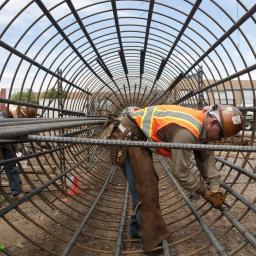Could Denver, CO be the future of modern urban transportation?
 American like to talk about progress and technological innovation, but they (we) get pretty quiet when it comes to our cars. Most American cities are increasingly nightmarish urban centers, choked with car traffic and foul with all the worst impacts of a society that has chosen the freedom of individual, automotive transportation and eschewed public transport in most of its forms. Everybody wants "reform" but few are actually doing it with much success.
American like to talk about progress and technological innovation, but they (we) get pretty quiet when it comes to our cars. Most American cities are increasingly nightmarish urban centers, choked with car traffic and foul with all the worst impacts of a society that has chosen the freedom of individual, automotive transportation and eschewed public transport in most of its forms. Everybody wants "reform" but few are actually doing it with much success.Enter Denver, Colorado. From CityLab:
But in a state that recently voted to legalize the retail sale of marijuana, change is clearly in the wind. Ten years ago, Denver's new mayor (and current Colorado governor) John Hickenlooper began to ramp up a campaign to convince voters to approve an ambitious expansion of the region's embryonic light rail network. A similar plan - fuzzy on such key details as routes and cost - had been defeated in a 1997 referendum. In 2004, the region's voters approved $4.7 billion of new debt for the FasTracks program. The plan, to add 121 miles of new commuter and light-rail tracks to the region, 18 miles of bus rapid transit lanes, 57 new rapid transit stations, and 21,000 park-and-ride spots, was approved 58-to-42, precisely reversing the results of the '97 referendum. (The pricetag has since risen to $7.8 billion.)By building a multi-poled system, RTD is tailoring transit to the contemporary metropolis. Crucially, by building it in conjunction with high-density transit-oriented development, the agency is also scheming to change the very nature of the American metropolis. That's why, when it comes to the future of transportation on this continent, Denver may be the city to watch.